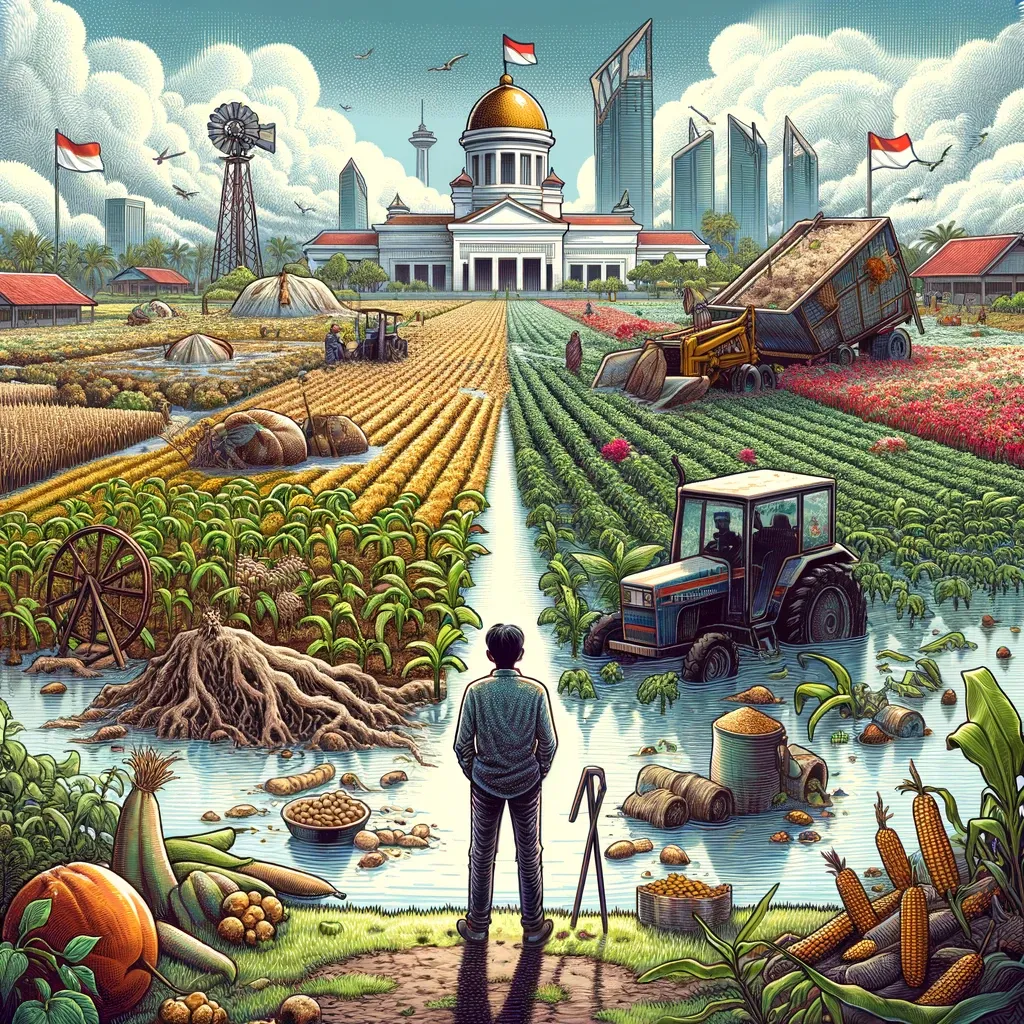Issues of food management and food security in Indonesia

The Food Estate program is a government initiative aimed at increasing agricultural crop yields. President Joko Widodo views the global food crisis as an opportunity for Indonesia to become the world's food barn. Current challenges require major innovations to address these issues. President Jokowi emphasized the need for extraordinary and unconventional innovations in building a food ecosystem with the hope of increasing rice productivity to 10-12 tons per hectare.
The concept of Food Estate, or food barn, is aimed at creating fertile fields for national food security and overcoming the food crisis with significant budget allocations. The allocated amount of 108.8 trillion rupiah is an indicator of the government's serious intention to implement this project. However, the implementation of Food Estate often does not meet expectations, and fertile lands turn into a source of disaster, highlighting the gap between concept and execution.
According to the voi.id website, the construction of the Food Estate in Central Kalimantan began in 2020 on an area of 30,000 hectares out of a total area of 1.4 million hectares. However, after three years, there has been a decline and uncertainty. The land that was expected to be used as a source of food security now has the potential to become a hotspot for disaster.
Similar projects were previously carried out during the rule of Suharto and Susilo Bambang Yudhoyono, but they ended in failure. The decision to launch the Peatland Drainage Project in Central Kalimantan highlights the weaknesses of this concept and its negative impact on the ecosystem and society.
The failure of Food Estate was caused by violations of four fundamental principles of large agricultural land development.
The debate around the Food Estate has reignited. The PDIP and academics have expressed their support and opposition to this project. The Secretary-General of the PDIP, Hasto Kristiyanto, stated that the policy of the Food Estate project has been violated. In his opinion, this policy is leading to deforestation, which he considers part of an environmental crime.
In response to the criticism of Food Estate, President Joko Widodo (Jokowi) emphasized that building food warehouses is not an easy task, as crop yields are usually lower on the first attempt. He also highlighted that food warehouses are important for forecasting food crises as strategic reserves and for export in case of food surplus.
Understanding the pros and cons, it is important to remember that achieving food security is not an easy task. It is essential to grasp the concept of food security, which includes aspects of availability, accessibility, and utilization of food. Sustainable solutions and attention to social and environmental impacts are key priorities for maintaining food security.
The government needs to carefully analyze the Food Estate concept with thorough assessments, precise calculations, and attention to social and environmental aspects. This is important considering the rise in rice prices due to drought and India's export ban. To achieve food security, it is also essential to avoid sacrificing ecosystems, communities, and the natural balance.
Comment
Popular Offers

Subscribe to the newsletter from Hatamatata.com!
Subscribe to the newsletter from Hatamatata.com!
I agree to the processing of personal data and confidentiality rules of Hatamatata


